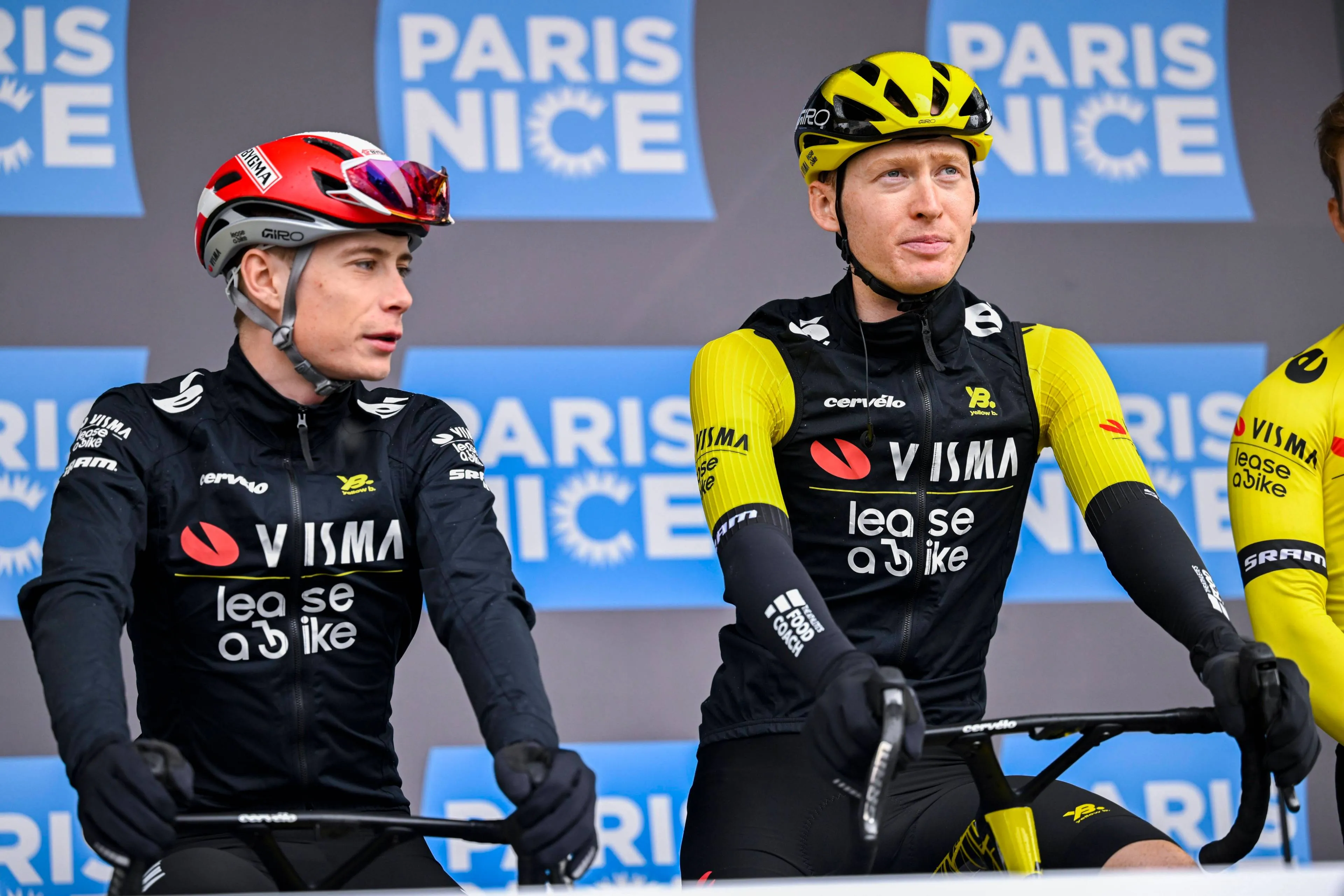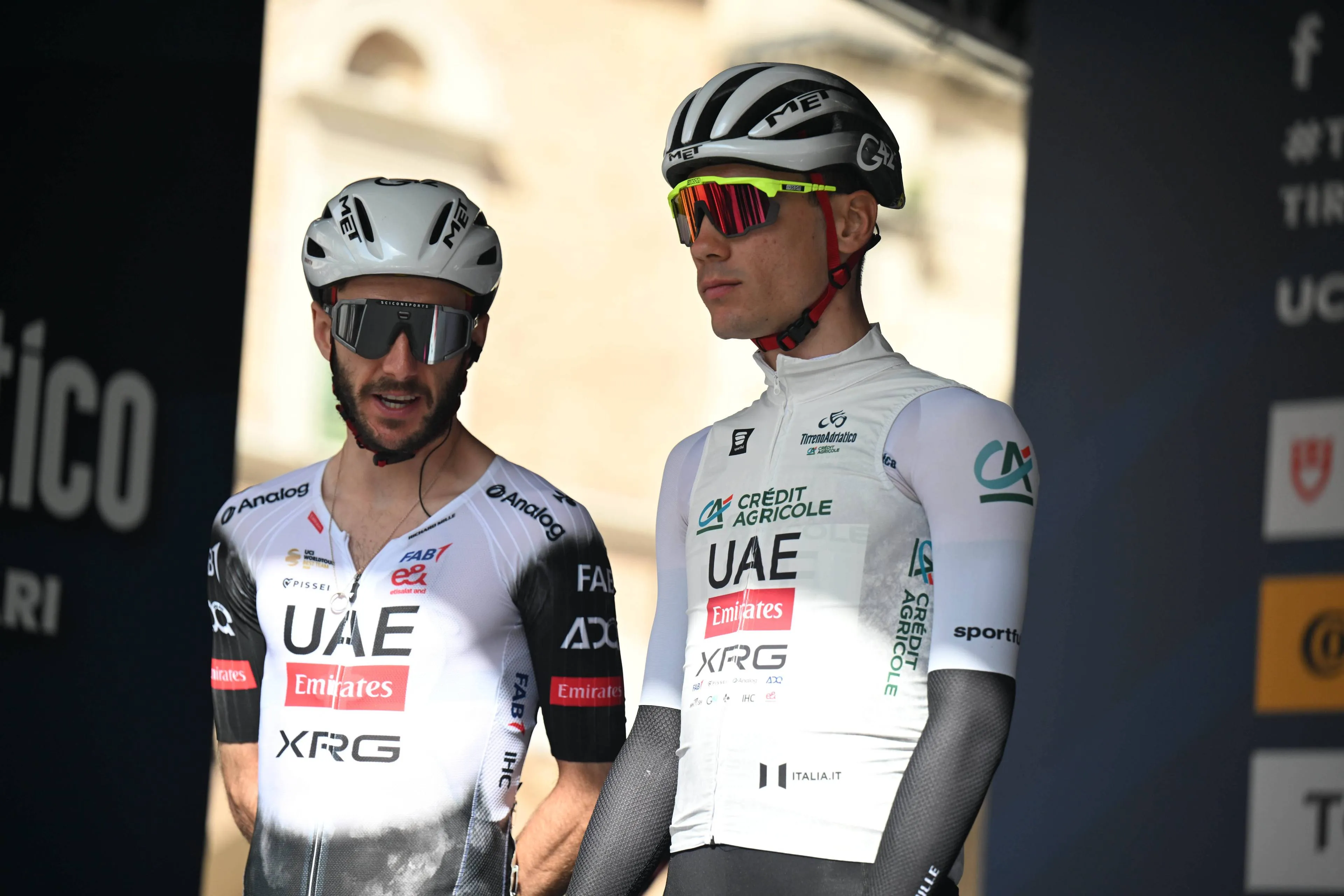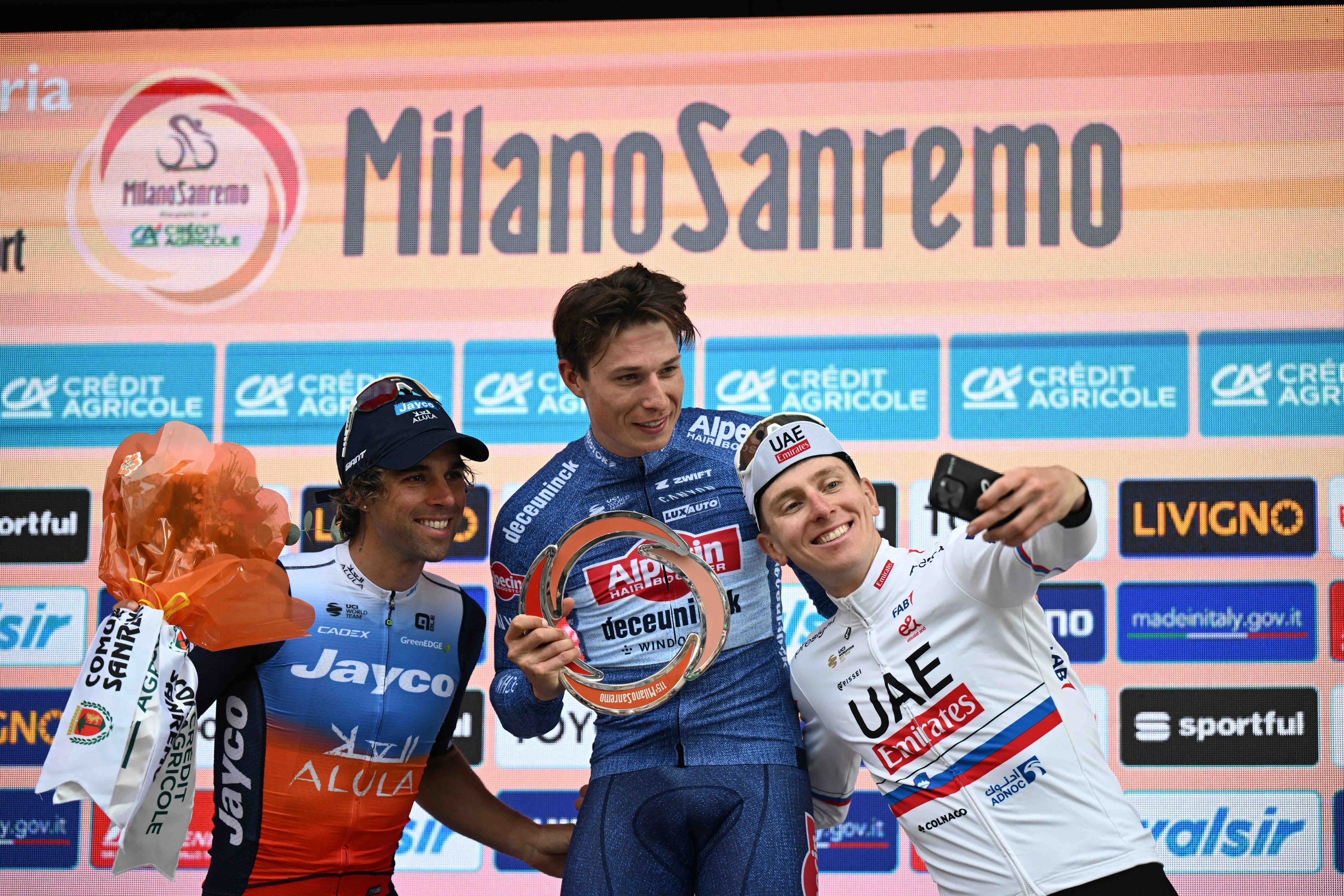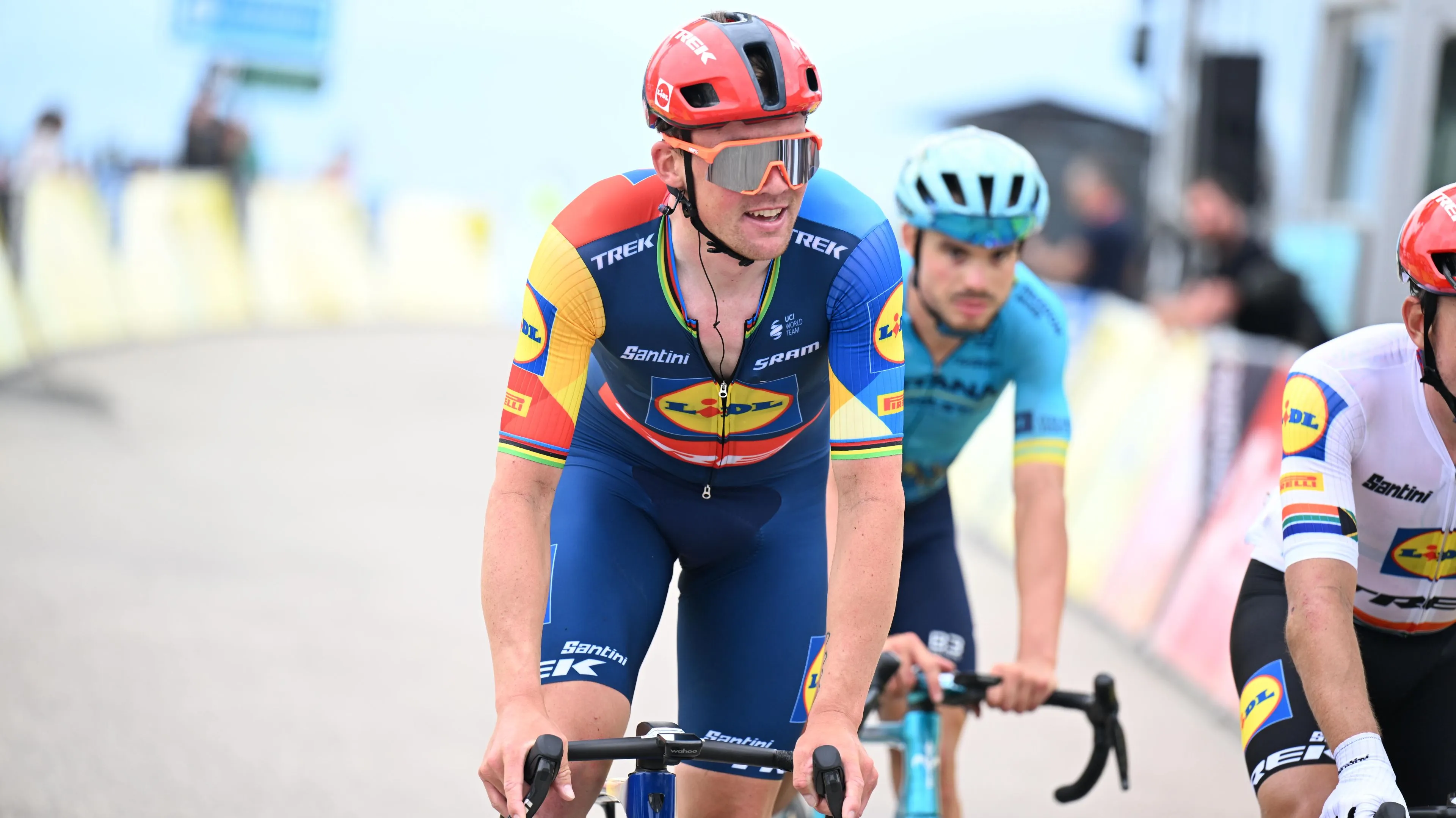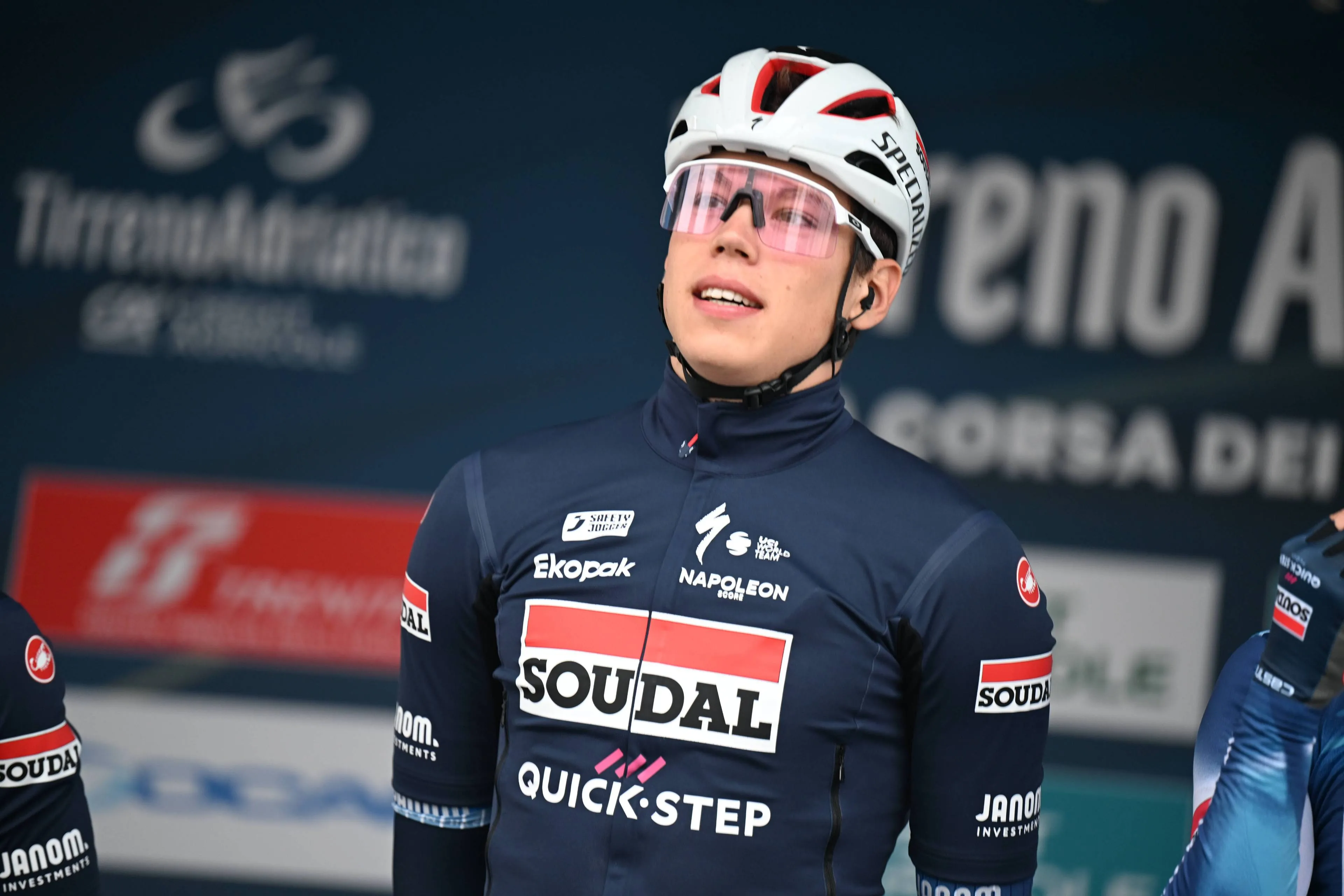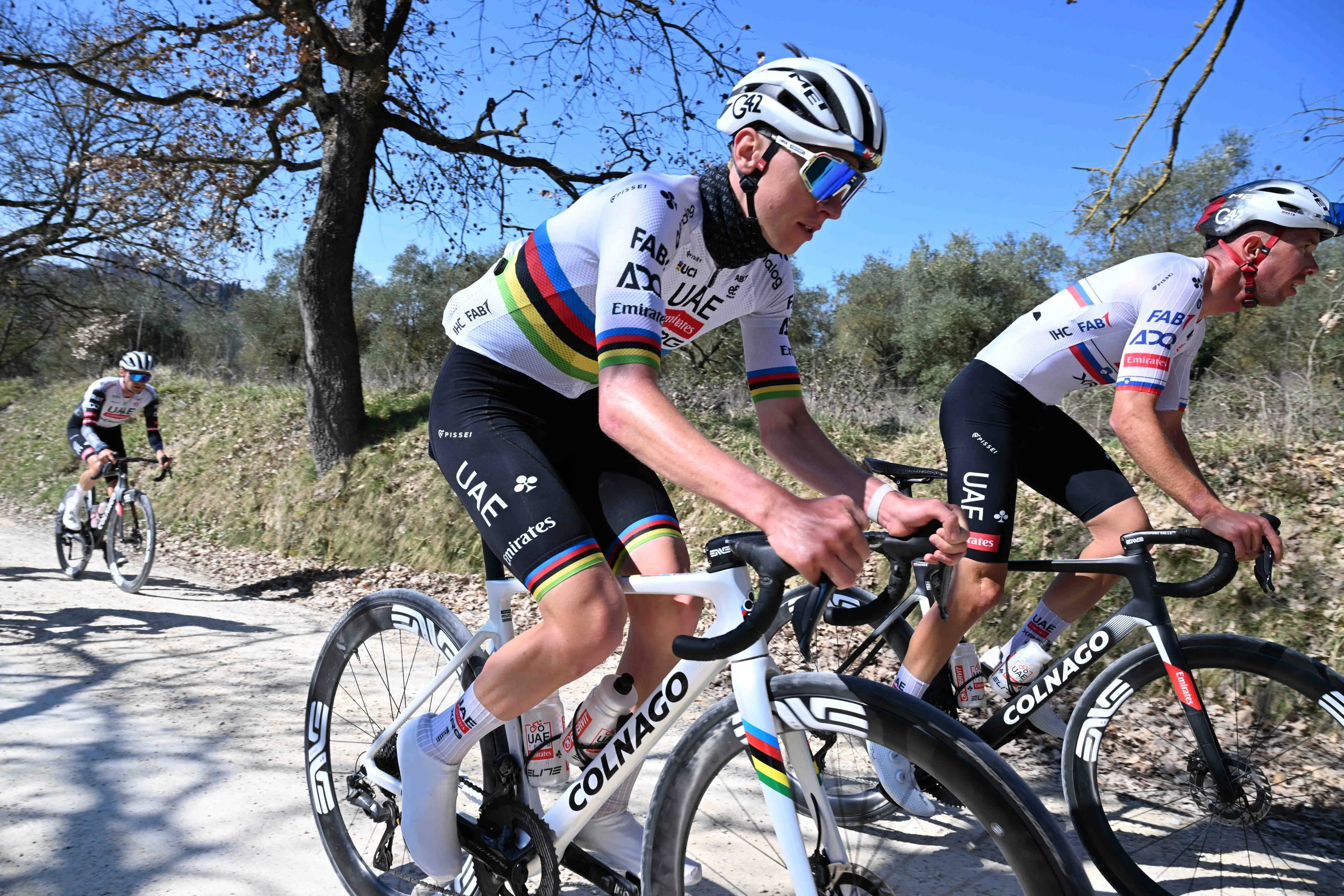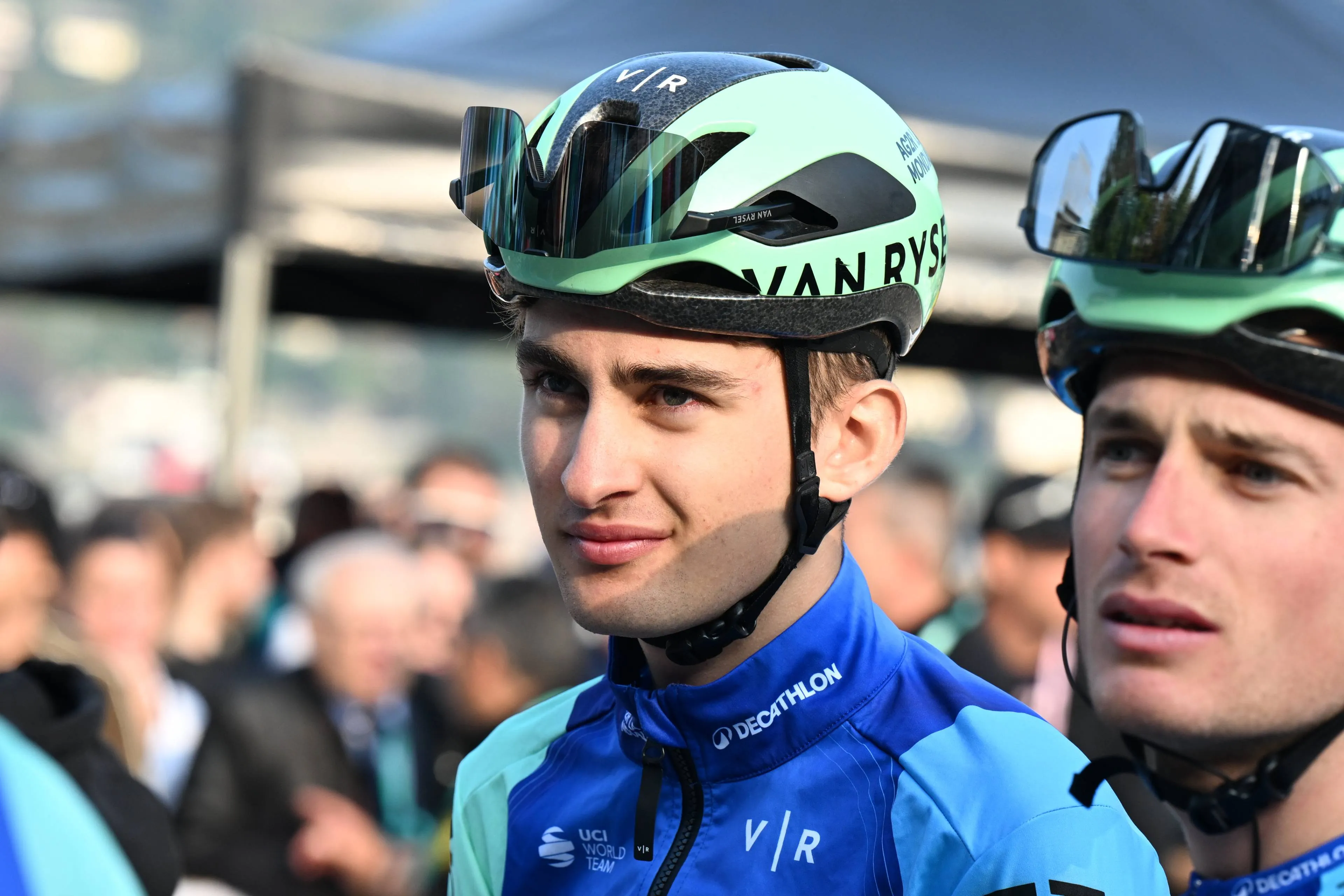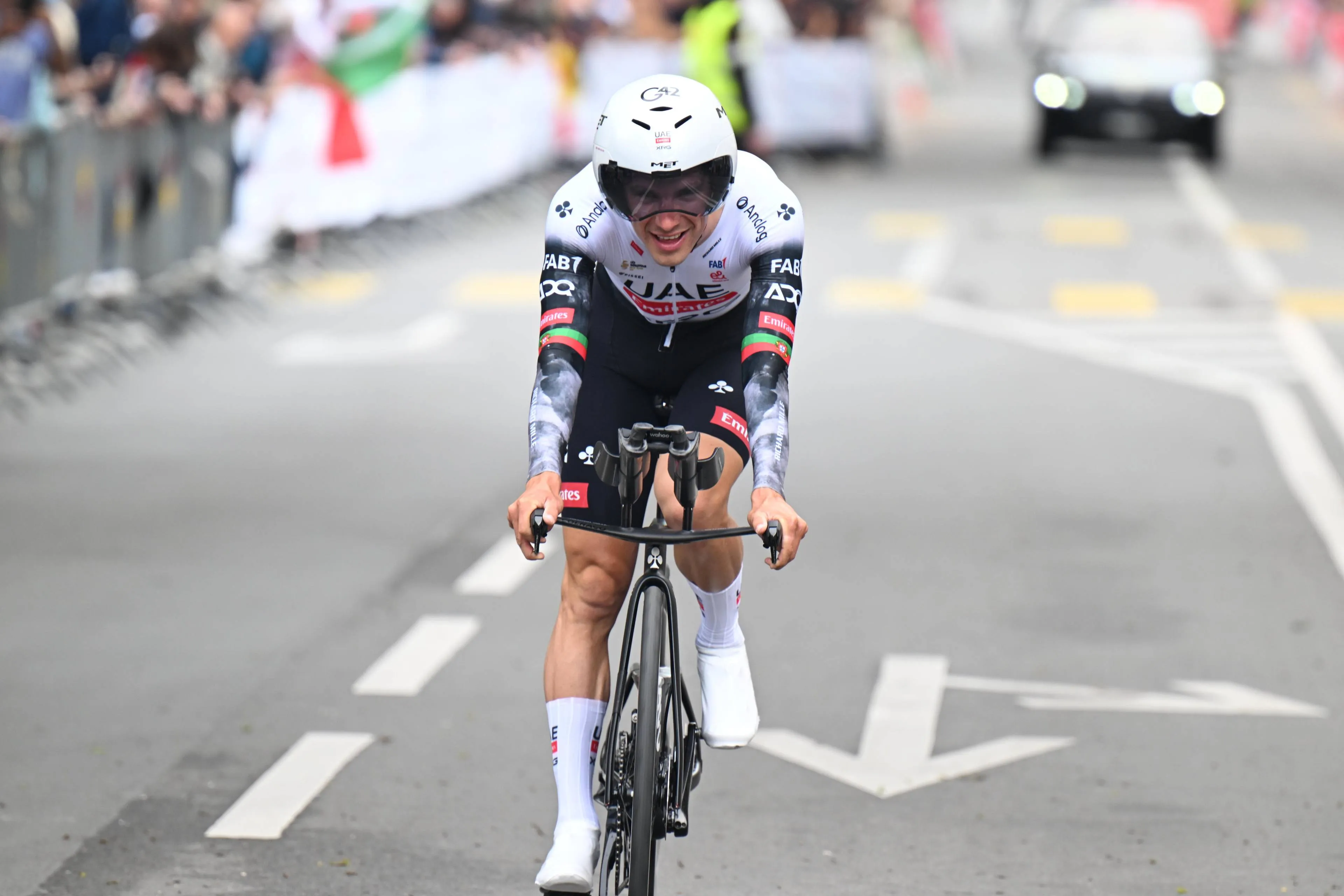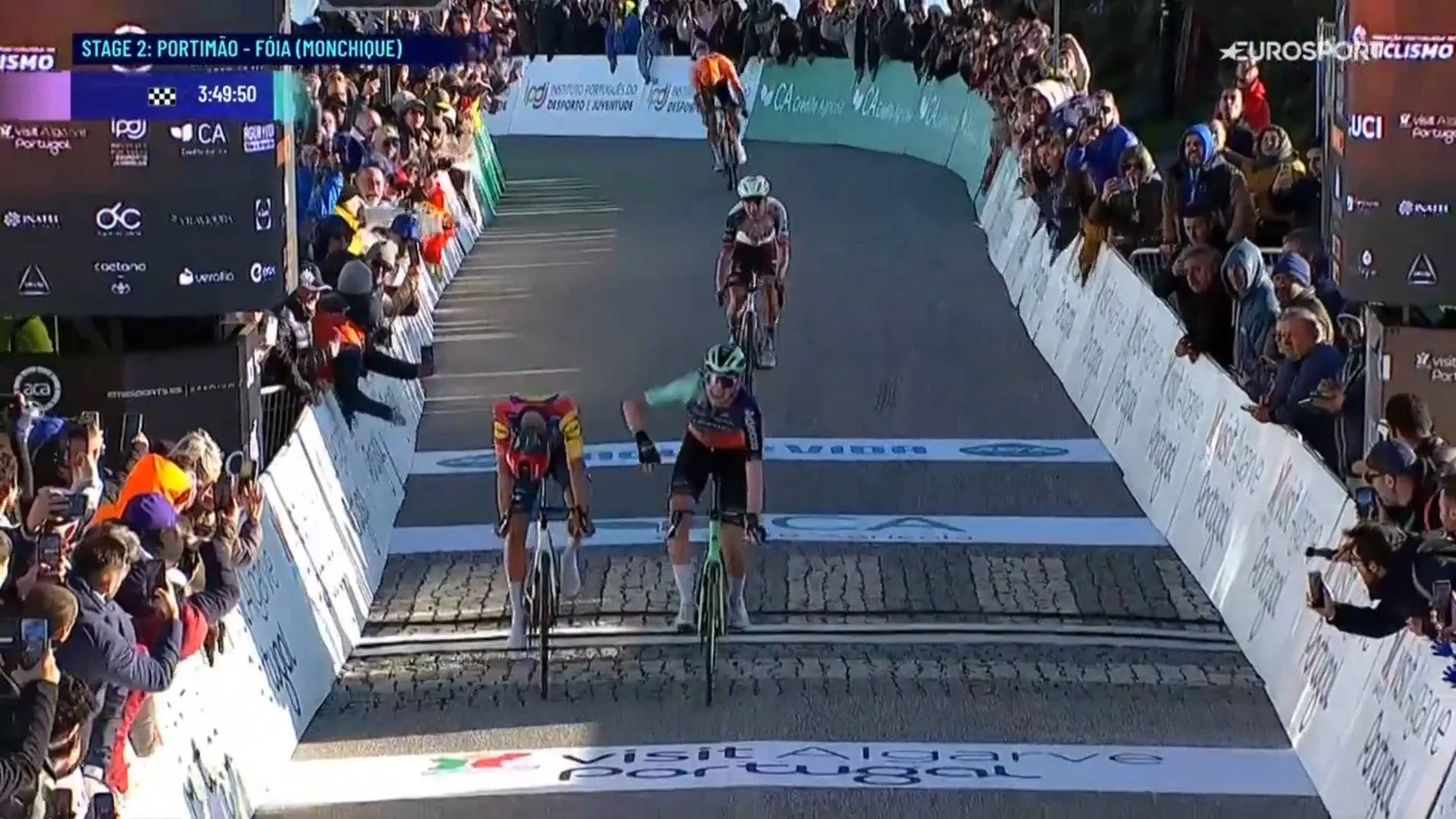“Roubaix is a special race” – Luke Lamperti eyes classics breakthrough with Soudal – Quick-Step
CyclingWednesday, 19 March 2025 at 06:00
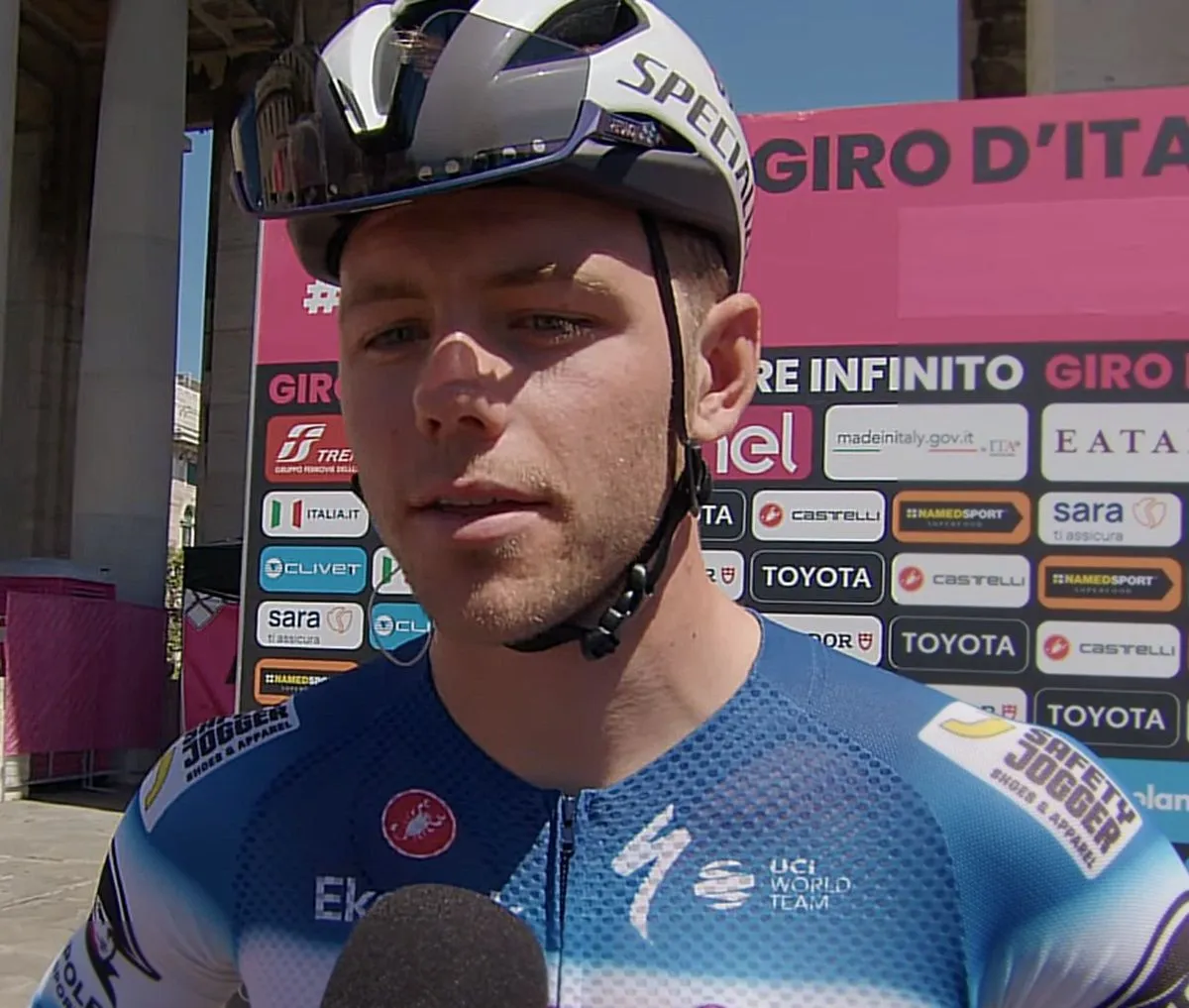
Luke Lamperti is gearing up for his delayed start to the
2025 season after a knee injury forced him to postpone his European campaign.
The 22-year-old Californian, racing for Soudal – Quick-Step, is eager to get
back to competing in the spring classics, but acknowledges that the injury set
him back.
“I’ve been in Girona a few weeks now,” Lamperti told Velo.
“It’s a later start to my season than normal. The plan was to be back in Europe
in January, but I had a small issue with my knee. It pushed my season back a
bit, and I couldn’t start training properly until January. I feel I’m ready to
race, and I’ll be ready for all the most important races at the spring
classics.”
The issue was related to his IT band, a problem that, if not
carefully treated, can become serious for a cyclist.
Read also
“Knees are tricky,” he explained. “Unlike a broken bone
where you know the timeline, knee injuries can be unpredictable. It can be an
issue at the front, at the back, at the side. You do thousands of pedal strokes
per ride, and if something is off, it can get worse real fast. We didn’t want
to push through it and risk the whole season.”
With the injury behind him, Lamperti will begin his European
season at Danilith Nokere Koerse, before moving on to the Bredene Koksijde
Classic (March 21) and Classic Brugge-De Panne (March 26). His role this spring
will be a balance between supporting Soudal – Quick-Step’s top sprinters, Tim
Merlier and Paul Magnier, while also taking his own chances when they arise.
Read also
“We’ll have to see how I am going after a different winter.
I’m jumping in without many races in the legs, so we’ll see where I can take
any opportunities when they’re there,” he said. “When Merlier is there, we’ll
all be working for him because the team always wants to win. We also have
Magnier going well in sprints. So in some other races when I have a chance to
take it I will, but I am always there to support the team. These races can go
1000 different ways.”
The classics are a cornerstone of Soudal – Quick-Step’s DNA,
and despite the team shifting more focus toward stage racing with Remco
Evenepoel, Lamperti knows that winning in Belgium remains a key priority.
“The classics are part of the DNA of this team. All the
directors care about it, the sponsors love it, the riders love racing them,” he
said. “They’re massive, and even with the focus on Remco and stage racing, the
team still puts a lot of emphasis on the classics. We probably don’t have the
same classics team they had five or six years ago, but the team will still be
good. We have guys like Lampaert, Merlier, big winners. The ‘Wolfpack’ always
wants to succeed in the classics.”
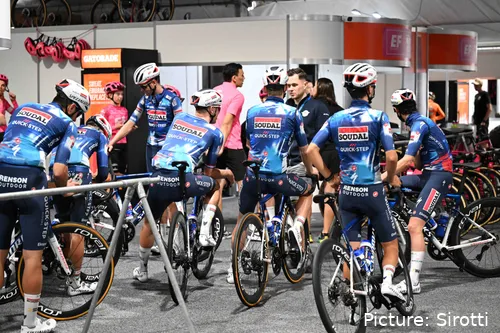
Soudal - Quick-Step are one of the best classics teams of the 21st century
One race he has his sights set on is Paris-Roubaix, a
legendary event he hasn’t raced since his junior days.
“It’s a race that I love, and I haven’t done it since I was
a junior,” he said. “Roubaix is a special race. Everyone goes to the start line
with hope. You can come out of a break and survive. You can come out of the
back and have a good day. A race like Flanders is a lot harder to follow the
big guys like Van der Poel and Pogacar. At Roubaix, you can have the day of
your life, or it can all go to shit.”
Last season, Lamperti quickly established himself at the pro
level, showing remarkable consistency in the classics. A top-10 finish at
Kuurne-Brussel-Kuurne in his first full classics campaign caught the attention
of many, proving that he had the ability to compete with the best.
Read also
“I was really happy to be quite consistent last year. I was
always there, so now it’s about converting that into results, to go from the
top 10 to being on the podium, and convert a few of those into wins when I have
the opportunity,” he said. “It’s a big reach to say I can go podium in a race
like Roubaix, but if I can convert my results from last year into podiums and
hopefully a few wins throughout the whole season, that’s where I would like to
make a step up this season.”
Despite his rapid rise, Lamperti insists he never felt
overwhelmed by the level of competition in the WorldTour. His Grand Tour debut at the Giro d’Italia last year was a
key learning experience, giving him the opportunity to share a team with Julian
Alaphilippe.
Read also
“It was really cool to do my first Grand Tour,” he said. “I
roomed with Alaphilippe for three weeks and learned so much just being around
him. He’s such a legend. It was such a successful Giro for the team. We won
three stages with Tim, Alaphilippe was flying and he won a stage. We hit top-10
with Jan Hirt. I came out of the Giro feeling stronger.”
While Lamperti is not a pure sprinter like Tim Merlier, he
sees himself as a rider who can win from reduced groups.
“I don’t see myself as a pure sprinter like Merlier. For me,
it’s more about surviving in smaller groups and being the fastest guy there. I
won’t be doing the sprints in the Grand Tours,” he explained. “I can win maybe
when there are 40 guys left, and I can be the fastest in that group. And I
think over the next three to five years, I’ll keep evolving in that direction.”
Read also
Rather than setting specific targets, Lamperti is focusing
on steady progress.
“I don’t have a specific race or goal. It’s more about
growing and improving and building on that consistency,” he said. “I want to
help the team and try to take advantage of any opportunities I can get. If I
can do that, we can go from there and see what happens. My season is changed a
little bit by starting later, but I’m excited to be racing again.”
His ability to consistently perform at a high level was
evident last year when he snagged a stage victory at the Czech Tour.
“Getting a win last year was big,” he said. “No matter what
the race, it’s hard to win at this level, so to win and to be consistent across
the entire season was huge.”
Read also
claps 0visitors 0
Just in
Popular news
Latest comments
- This excuse is harmless, just quaint and amusing. The excuse I really disliked was when he accused a mechanic of improperly adjusting his saddle, endangering the mechanic's job: blaming others for your own limitations is a serious matter.
 maria2024202419-02-2026
maria2024202419-02-2026 - ok so this is impressive - I trashed this guy all winter, get a pro win before the anointing. against a quality field. And Onley and Riccitello look good too. fun to see young blood.mij19-02-2026
- Minor flaws.... thats like suggesting Genghis Khan was a bit aggressive with other countriesslappers6619-02-2026
- Then you carry on if that's what makes you happyslappers6619-02-2026
- Fabio cannot catch a break.mij19-02-2026
- OK, today is the "air conditioner"... yesterday was a cramp... on saturday a bee will sting him in his tongue... his tongue will swell up and mustafa gets no oxygen. Because of his swollen tongue, Remco won't be able to give us a new excuse. Remco and the spanish rat Ayuso should be on the same team. They both have a ton of excuses and both of them are liars. Ad acta.Mou-Cro-HR19-02-2026
- Florian Lipowitz is secretly happy
 Rafionain-Glas19-02-2026
Rafionain-Glas19-02-2026 - The crucial thing to remember is that Remco was broken by the pace of Gall and Tiberi, not Del Toro's. Remco's excessive antics are because he doesn't want anyone to think that he's 'genuinely' struggling. You can always say 'he got cramps' because 'his preparation didn't go to plan', but the thing is that there is a limit to the number of excuses and exceptions that there can be. Eventually everyone just accepts that he's reached his ceiling on the climbs.
 Rafionain-Glas19-02-2026
Rafionain-Glas19-02-2026 - Bahraini suspicious..Santiago19-02-2026
- The problem is, a British 'boss' opening the gates, when the native workers not wanting them!
 leedorney19-02-2026
leedorney19-02-2026
Loading
Write a comment
